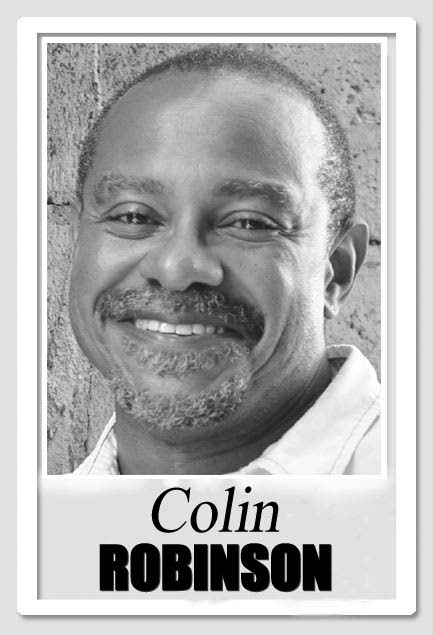The opportunity to decide

Last week I talked about survival and faith, and I rarely get to do the latter, so I want to continue.
Religious leaders have invariably been on the wrong side of history. Letterwriter after letterwriter this week, columnist after columnist took to the papers to deliver one form or another of that message. #6EquallyOpportunisticFaithLeaders (as CAISO has been hashtagging mischievously) had linked arms to tell the nation their congregations advocate that citizens whose gender causes the leaders anxiety be excluded from protection by our national human rights institutions. And shouldn’t have their families recognised—because, well, that would destroy family.
On the wrong side of slavery and Nazism, too, Mark Wilson and Theodore Lewis reminded us—how the same anxieties about family and tradition that fascism always plumbs were also deployed then. Then Louis W Williams likened LGBTI NGOs to slavery ameliorationists for not demanding equal marriage. What a week!
The Caribbean is such a nuanced place most foreign analysts can’t fully grasp our complexities. I have an annual game of finding things Ash Wednesday’s international wirestories on Carnival deeply misunderstand, yet try to explain with authority. Our reputational homophobia (another misunderstood complexity) prompts scores of US students to interview me for papers and projects. I always argue. One recently linked phenomena like these six leaders to many societies’ turn to fundamentalism to cope with “citizen insecurity,” manifest in TT’s powerlessness over violent crime.
I agreed. But our spike in crime victimisation, I argued, coincides exactly with a spike in LGBTI visibility that led young people organising TT’s 28th annual Pride Month celebration, launched this week, to make its schedule public and invite allies for the first time (Fazeer Mohammed’s on-air provocations about violence notwithstanding—he’s so predictable).
PANCAP, our regional HIV planning mechanism, has goaded me to work with faith leaders. They think they will champion human rights, and help end AIDS; Winston Mansingh was once one. I’m not sure I have the patience. On a panel at their recent meeting, I asserted confidently how thoroughly un-Caribbean Evangelical fundamentalism was.
As the McEwan case from Guyana comes before the CCJ this week, there’s been much public discussion of the social history of the period that produced the 1893 Guyanese law used in 2009 to arrest and fine the four young working-class transgender women challenging it. A post-Emancipation era that, historians have documented, worked assiduously to control in other ways recently manumitted Africans whose labour it no longer did, along with recently indentured Indians, and the faiths, dress and movements of both. Micro-aggressive laws policing loitering, matshaking, riverbathing, praise-shouting, grooming, crossdressing.
How similar today’s anxieties seem to those of the 19th century in which plantation routines settled as the bedrock of much of Caribbean society today.
But I have come to understand the principles of Full Truth fundamentalism as a very Caribbean violence. If only the anointed can get into heaven, life’s work is to make the divide between us and others clearest.
Sitting around Netflixing around last month’s eye surgery, I stumbled on Come Sunday, a biopic of Carlton Pearson, one of the first African-American megachurch televangelists. The film depicts Oral Roberts, mourning the estrangement of his gay son, contemplating Pearson, his mentee, as a successor. Pearson, however, watching the Rwandan genocide televised, has a vision, rejects Pentecostal teaching, and preaches that everyone is already redeemed by Christ’s sacrifice and heavenbound—even non-Christians.
He ends up declared a heretic by bishops, losing his church, and embraced by Affirming Ministries Bishop Yvette Flunder (who’s been invited to visit here as part of local LGBTI communities’ exploration, following last Monday’s hand-holding, of creating their own affirming worship communities).
Pearson’s theology is in many ways the New Testament that Caribbean independence promises: a gospel of equality and possibility, of a loving country. It provides a clear answer to the decision Mia Mottley framed in that 2011 HIV conference room: What kind of society do we want to build? What kind of children do we want to raise? One, I realised, was almost identical to what Jason Gordon asked.
We are lucky to be burdened with the opportunity to decide. Our politicians. Our judges. Anyone who serves the public in any way. My colleagues on a board of changemakers chatted recently about how critical these times are, how we simply won’t survive them without some sort of transformational change. Another conversation this week was in a supermarket aisle, with a schoolfriend, who matter-of-factly recounted his home invasion, the rage of the bandit. We talked about all the very simple things we could do to prevent rage. Deliver justice. That leaders don’t.
I’ll be in the courtroom faithfully come Thursday, as I was April 12. It’s another opportunity for us to decide between the Old Testament of vagrancy laws and the New one of constitutional equality.

Comments
"The opportunity to decide"